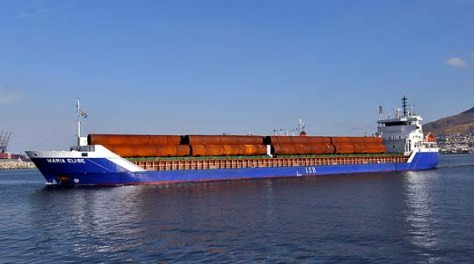(VLR) Demand for less-than-containerload (LCL) services is rising among global importers and exporters whose business models rely on cost, inventory control, and supply chain visibility. The shift to more LCL services in industries such as oil and gas (O&G), retail, and automotive can be attributed to several factors.

Demand for less-than-containerload (LCL) services is rising among global importers and exporters whose business models rely on cost, inventory control, and supply chain visibility. The shift to more LCL services in industries such as oil and gas (O&G), retail, and automotive can be attributed to several factors.
Oil and gas fuels change: Running an end-to-end logistics operation in a global O&G market is complex, but some of that complexity is eased by new lane additions to ocean freight services that link key geographies while reducing cargo handling.
The multi-billion-dollar companies harvesting our worlds energy cannot tolerate supply chain delays or inventory depletion. O&G companies need efficient and cost-effective replenishment to supply global locations with new parts and equipment. LCL service provides that capability.
O&G companies want quick shipment pickup; crating options for improperly packaged or easily damaged cargo; and flexibility in cargo cutoffs for container loading. After an LCL shipment is exported, communicating vessel details and forecasted arrival via Web tracking allows O&G companies to manage deliveries or schedule crews to work rigs or production line operations at the destination. Being able to properly communicate and declare to the import customs agency eliminates the need to hold or inspect cargo.
Retail takes stock: As global retailers adjust to volatile consumer demand, third-party logistics (3PL) providers continue to enhance services that provide more control over shipments and quicker cargo availability at destination.
Retailers also want the ability to keep inventories moving without overstocked supplies, and at a low cost. LCL allows retailers to properly plan transit times so they can order just the products they need, and send shipments either to distribution centers or direct to store/customer. This approach helps maintain a balanced inventory that maximizes on-shelf availability without excess inventory or on-site stock.
When 3PLs control cargo flow and routing, they can respond to retailers need for last-minute availability, pickup and delivery scheduling, or even mode changes in transit.
The logistics provider may also be able to select steamship lines that provide the best service levels in terms of on-time delivery against posted schedules, as well as flexibility in working with terminals and/or railheads to help expedite cargo availability and release.
Automotive rolls on: Freight forwarders must tailor solutions to meet automotive shipper requirements, whether its choosing an LCL service to match production schedules or providing visibility to key milestone events.
Integrating LCL into an automakers supply chain helps streamline product flow to keep logistics costs down while keeping the assembly line moving. By supplying a detailed LCL door-to-door schedule, logistics providers help automakers maintain production plans and allow buyers to cut sourcing costs.
As evidenced by the O&G, retail, and automotive industries, LCL services are necessary when building a true end-to-end supply chain.